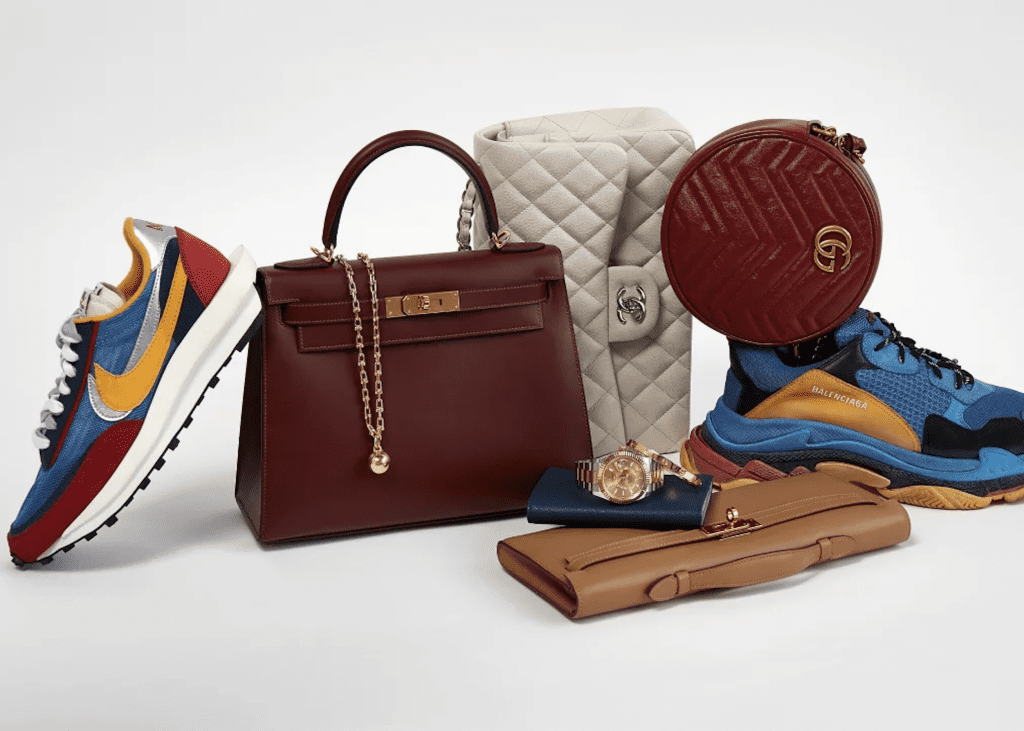There is no easy end in sight in the enduring trademark and anti-competition lawsuit between Chanel and The RealReal. Seven months after a New York federal court put the case that Chanel filed against The RealReal on hold while the parties participated in a mediation with the aim of a settlement, the court has since lifted the stay after the famed fashion house and the luxury reseller were unable to make peace. “After extensive settlement discussions, a preliminary call between representatives of the parties, and three full days of mediation occurring on September 20, September 24, and November 8, 2021,” counsels for the two companies alerted the U.S. District Court for the Southern District of New York Judges Vernon Broderick and Gabriel Gorenstein that they “have been unable to reach a resolution of the matter at this time.”
In a joint letter dated November 18, The RealReal and Chanel agreed that the stay in proceedings – which was slated to run until January 2022 – should be lifted in light of their inability to settle the 3-year-old trademark infringement and counterfeiting, false advertising, and unfair competition case. But the common ground seemingly ends there, with the two sides telling the court that they “disagree as to how the case should [now] proceed.” In the wake of the court putting the proceedings back in play, a more recent joint letter from Chanel and The RealReal indicates that they continue to disagree about how the case should move forward in light of existing discovery disputes, namely centering on the anti-competition counterclaims that TRR lodged against Chanel early this year.
Chanel and TRR’s Positions
According to a December 13 letter, in which Chanel and The RealReal (“TRR”) assert their respective proposals for how the case should go from here, TRR suggests a discovery schedule that would entail “substantially complet[ing] document production by March 14, 2022” and that would run until October 1, 2022, the closing date of expert discovery. In connection with its proposed way forward, TRR asserts that despite Chanel’s claims to the contrary, its antitrust counterclaims require only “limited additional discovery,” and the parties “should be able to complete all fact discovery in five months.”
Pushing back against claims previously made by Chanel that its antitrust claims significantly alter the case and the discovery required, TRR contends that the parties have “already engaged in substantial discovery … some of which directly relates to Chanel’s anticompetitive conduct,” as it is “equally relevant to [the] unclean hands defense” that TRR first set out in its answer to Chanel’s complaint in May 2020. Moreover, the reseller asserts that Chanel’s qualms are misplaced, as Chanel “has known for almost 18 months that TRR was seeking discovery regarding [its] anticompetitive conduct.” Chanel’s alleged “delay and repeated refusal to meaningfully participate in the discovery process should not serve as a basis for continuing to delay resolution of this case,” TRR argues.
Meanwhile, Chanel prefaces its proposed timeline by asserting that “after injecting a full-blown antitrust lawsuit claiming significant damages into this previously straightforward case about TRR’s counterfeiting and false advertising, TRR now proposes a discovery schedule that effectively pretends like its antitrust claims do not exist” and that “bears no resemblance” to the timeline of a “real-world” antitrust case and the “sprawling, costly, and hugely time-consuming undertaking” that discovery in such cases can entail.
The antitrust discovery in the case at hand is “rendered [even] much more complicated by the fact that TRR alleges independent and unrelated instances of exclusionary conduct (e.g., TRR alleges that Chanel entered into four different independent vertical agreements not to deal with TRR and engaged in several other allegedly anticompetitive acts which are disconnected from each other),” Chanel argues. In short: Chanel asserts that while it has “given serious thought to the [discovery] proposal advanced by TRR,” the timeline is “not realistic,” especially since “no actual antitrust discovery has yet been provided by either side.”
As such, Chanel sets out three different proposals for how to proceed, including two that envision a separate stay being put in place to either halt “all discovery” until the court resolves its currently-pending motion to dismiss TRR’s counterclaims or halt “all antitrust counterclaims and unclean hands discovery” pending the resolution of the same pending motion to dismiss, but continue discovery regarding “Chanel’s intellectual property claims.”
(In March, Chanel lodged a motion to dismiss TRR’s counterclaims and to strike TRR’s unclean hands affirmative defense, arguing that TRR has “inject[ed] a full-blown antitrust and tortious interference lawsuit, unrelated in time or nexus to Chanel’s original claims, [and] based entirely upon conclusory allegations about purported conduct that TRR contends took place well before the acts and occurrences alleged by Chanel and outside the statutes of limitations.”)
The Background
The parties’ joint letter comes just over three years after Chanel filed a headline-making lawsuit against TRR in a New York federal court, accusing the San Francisco-based luxury reseller of engaging in “improper business practices” by “represent[ing] to consumers that it ‘ensure[s] that every item on TRR is 100% the real thing, thanks to our dedicated team of authentication experts,’” and then offering up and selling “at least 7” counterfeit Chanel products. Chanel has also taken issue with TRR’s “advertising and marketing practices,” claiming that the reseller “has attempted to deceive consumers into falsely believing that [it] has some kind of approval from or an association or affiliation with Chanel” when no such association exists.
After pushing back against Chanel’s trademark claims, and characterizing the lawsuit as “nothing more than a thinly-veiled effort to stop consumers from reselling their authentic used goods, and to prevent customers from buying those goods at discounted prices,” TRR filed an the amended answer in February 2021. In a handful of counterclaims, TRR alleges that Chanel has engaged in violations of engaging in an “aggressive campaign” of “exclusionary and anticompetitive conduct” aimed at “monopoliz[ing] the market” – and thus, the supply and price of its goods, both new and pre-owned – to the detriment of its competitors and consumers, alike. Specifically, TRR contends that Chanel has tried to illegally “stymie competition” that comes from resellers – which “threaten the very core of its business model, [one that] is premised on a limited supply and few access points for consumers” – by entering into “exclusive contracts with high-end retailers,” and anticompetitive deals with publications like WWD, New York Magazine, the New York Times, and Vogue.
Still yet, TRR asserts that Chanel has been taking legal action against a number of resellers, including but not limited to itself, in order to maintain its grip on the market. Yet, Chanel has failed to file suit against Farfetch for offering up pre-owned Chanel products in a similar manner because Chanel made a “significant” investment in the e-commerce platform in February 2018, which further serves as an anticompetitive tactic, per TRR.
Chanel has since pushed back against TRR’s monopolization claims, asserting that the reseller has failed to adequately show that Chanel actually monopolized – or attempted to monopolize – the market, and that its tortious interference claims are either time-barred or without merit.
All the while, Chanel is also in the midst of a similar lawsuit that it waged against reseller What Goes Around Comes Around in a New York federal court in March 2018.
The case is Chanel, Inc., v. The RealReal, Inc., 1:18-cv-10626 (SDNY).














